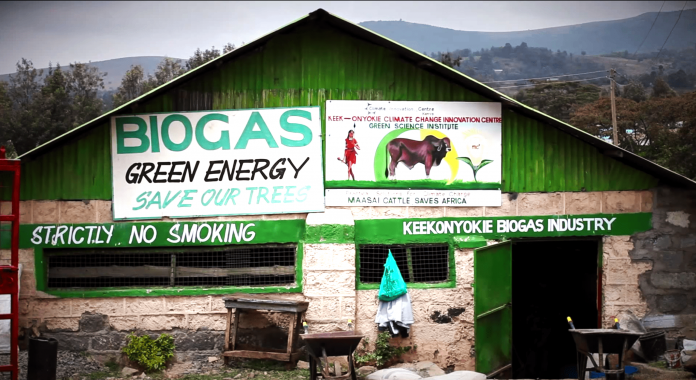Several green innovations promising to unleash cleaner and cheaper solutions in Kenya have been put on ice, not because of lack of market or funds but due to missing policy links.
Take the case of Keekonyokie slaughterhouse owned by a group of Maasai pastoralists in Kiserian. The group has been looking to supply homes with biogas extracted from animal waste and packaged into refillable cooking gas cylinders, the way it is with LPG. This is after test-runs indicated the innovation is not only viable but safe, clean and affordable.
However, the challenge is that Kenya is yet to develop a policy framework with standards for this innovation (packaged biogas) – meaning it cannot receive certification from Kenya Bureau of Standards (Kebs) in the absence of set norms.
Without this, the product cannot be put on the market, denying households a cheaper and cleaner alternative cooking fuel while blocking investors from generating new income streams.
This clearly demonstrates a case where innovation has gone ahead of policy. Policy is the missing link here. The existing framework covers piped biogas from stationary digesters for cooking and electricity production. It does not provide for portable, bottled biogas.
Innovation is almost always steps ahead of policymaking, which calls for more flexible policy frameworks that are accommodative and anticipative of new projects.
Policymakers have to keep abreast with shifting market and industry trends in order to embed flexibility within policy frameworks in anticipation of future changes.
They have to collect market intelligence data and track consumer behaviour through surveys and frequent interactions with stakeholders. Also, all public watchdogs and policymaking organs should work closely with Kenya Industrial Research and Development Institute (KIRDI) alongside Kenya Industrial Property Institute (KIPI) to get a sense of what kinds of ideas innovators are pitching. This will enable planning into the future.
But this task should not be left entirely to the government. The private sector as well as non-profit organisations and civil society have a role to play too, especially because most innovations come from them or championed by them.
They should use public-private sector collaborations to share their ideas on their desired policy frameworks.
With LPG prices having rocketed in Kenya and pushing low-income households back to dirty fuels such as charcoal, the packaged biogas would be a good substitute.
Additionally, the project if replicated in other parts of the country would help cut the amount of methane escaping into the atmosphere from ranches. Methane, the gas released when animal waste decays, is more potent than carbon dioxide in fanning global warming.
The concept of refillable biogas may also open a revenue stream for schools with herds of livestock, as well as for smallholder farmers who may pool into cooperatives.
Challenges coming from climate change and rapid urbanisation are also presenting opportunities to be met with innovative solutions.
Climate change, for instance, has opened two windows through which innovation can happen – mitigation through emission cuts and adaptation through strengthening resilience.
As a result, special attention is going towards sustainable projects and related technologies including smart agriculture, energy efficiency, forestry, renewable energy, green transport, waste management as well as resource efficiency in industries and buildings.
At the wheel of this green drive are small and medium-sized enterprises (SMEs) such as Keekonyokie slaughterhouse.
Small enterprises tend to be more flexible in adjusting to changing times compared to large organisations and can, therefore, be powerful agents of positive change in the society, if accorded the right environment to thrive.
Read also:Why Denmark Is Financing Green Enterprises in Kenya
But they face a number of challenges, including cash constraints, inadequate skills for executing a business plan, lack of information on intellectual property as well as infrastructure gaps and rigid policy frameworks.
Addressing these issues should energise this army of enterprises to collectively lead the transition to a green economy by building a steady pipeline of climate-friendly projects.
Our approach at Kenya Climate Innovation Centre (KCIC) has been a conveyor belt strategy in which startups’ ideas are incubated, fleshed out, funded and facilitated to scale up. In other words, being walked through the entire journey, from ideation, proof of concept, acceleration to market access and growth.
I hope the Maasai pastoralists behind the project will finally get a breakthrough in terms of policy facilitation and put their biogas cylinders on the market.
The writer is the CEO, Kenya Climate Innovation Centre (KCIC)
This article first appeared in the Business Daily.



